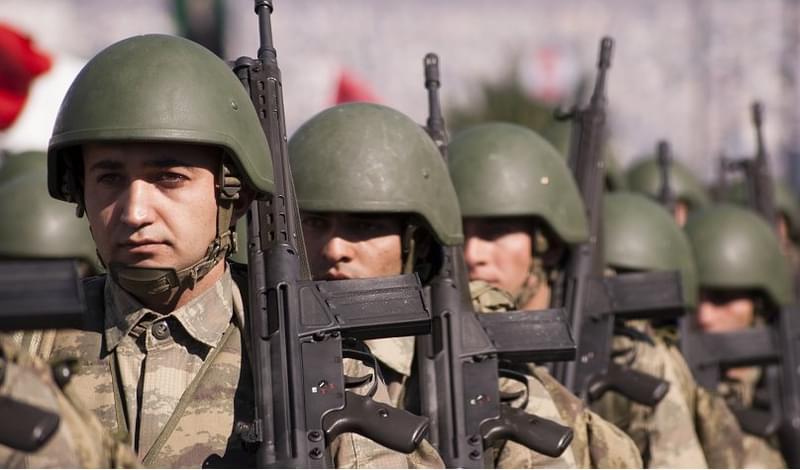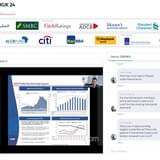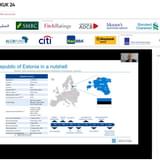An attempted coup that left nearly 200 civilians dead, set in motion by a faction of Turkey’s military on Friday and quashed by the government early Saturday, sent markets into a brief panic mode early this week.
Turkish President Recep Tayyip Erdogan laid blame for the coup on onetime ally Muhammed Fethullah Gülen, a Turkish preacher and former imam currently living in the United States, and is currently seeking his extradition. Meanwhile, the government has detained or dismissed thousands of judges, military and police personnel, and other officials suspected of being aligned with or supporting the coup.
The Turkish lira lost over 5% of its value over the past few days, dropping from 2.8782 to the US dollar on Thursday to 2.9845 today, retrenching slightly from lows of 3.0157 by end of trading on Friday.
The drop prompted the Central Bank of Turkey to implement emergency measures aimed at calming the currency rout, promising unlimited liquidity to the country’s banks and cutting the commission rate for intraday liquidity to zero. The Central Bank is scheduled to meet again today, and while there is arguably more pressure on the Central Bank's new governor Murat Cetinkaya to ease more aggressively, the recent drop in the lira will complicate any short term rate decisions.
Turkish Deputy PM Mehmet Simsek said the government has no plans to intervene or implement capital controls despite concerns over ‘hot money’ potentially leaving the country in the wake of the attempted coup.
The events this weekend also prompted panic among Turkish debt and equity investors. Turkey’s 10-year government bond yield has risen by 70bp since 15 July, and the Istanbul stock exchange declined by roughly 7% since last Friday. Spreads on Turkey’s credit default swaps (CDS) have widened by 20bp to hit 248bp, according to data from Bloomberg and the IIF.
“While capital inflows were solid in the first half of 2016, flows are likely to weaken going forward. Turkish banks may find it harder to access foreign funding, unlike the first half of the year,” explained Ugras Ulku, Senior Economist, Europe at the IIF in a note on the impact of the coup.
“Although most corporate FX debt is long-term, domestic corporations could experience rising balance sheet stress and weaker profits, especially those that do not have natural FX hedges. Correspondingly, domestic banks may begin to suffer from increasing NPLs over time as they are the main lenders to those companies.”
Ulku said economic and political uncertainty could lead to a downgrade by major rating agencies, which may trigger a sell-off of Turkish assets by institutional investors.
Moody's and Fitch both rate the sovereign one notch above investment grade, and Moody’s has said it would review the rating imminently as it evaluates the impact of recent events, while Fitch, which plans to review Turkey’s rating in August, said the coup attempt could weaken its creditworthiness. S&P, which in May revised its outlook on Turkey from 'negative' to 'stable', said it would also review the impact of recent events on its credit rating.
Despite a near-term victory for democracy in Turkey, Investors seem concerned about the impact of the coup on the country’s long-term prospects.
“We have benefitted from higher yields in the short term but we are concerned about the long term stability of the country,” a CEEMEA-focused investor told Bonds & Loans. “The political climate in Turkey has become less predictable.”
“[The coupe perpetrators were] a sizeable group made up of thousands. While Erdogan and the government are trying to get rid of the alleged perpetrators and curb opposition, and while the government definitely has grass roots support, it isn’t clear whether this is the beginning of more substantial opposition, which could be a huge destabilising force,” she added.
Caroline Gorman, an EM investment manager at GAM in London said the company’s long-only local currency denominated fund was slightly underweight ahead of the attempted coup, and took the opportunity with the pullback in USD/TRY on Monday morning to make a further small increase in the underweight by selling lira on concerns around political stability, and the likelihood that deteriorating domestic fundamentals will be brought into focus.
“Low oil prices and subdued US Treasury yields have helped support the Turkish economy in recent years, although if capital inflows to Turkey now slow, this could make Turkey’s current account deficit more difficult to finance, particularly with heightened downside risks to tourism now,” she said.
In a note on the events unfolding in Turkey, Ashmore’s Head of Research Jan Dehn said investors should be concerned about the potential for Erdogan to use the recent coup to further centralise power, a trend that has defined his presidency in recent years.
“Investment-led growth economies in Asia in particular were able to grow strongly on the back of high domestic savings rates and a very technocratic public administration, which ensured that stable financing was available for investment and that investments were selected and implemented efficiently. Neither condition applies to Turkey, which sources much of its financing from fickle external portfolio flows and where the political elite exercises considerable discretion in project selection and implementation.”
“Turkey’s political elite also routinely intervenes in monetary policy decisions, which raises serious questions about the sustainability of Turkey’s credit-fuelled development model, especially in the event of higher global interest rates,” he explained.
Dehn also said the coup – and the muted response of the West – could prompt Erdogan to look eastward to countries like China and Russia for support, which could further undermine the West’s partnership with Turkey on a series of issues ranging from the conflict with ISIS in neighbouring countries and the refugee crisis to EU accession talks.
“The West has, through its failure quickly to declare support for the principle of Democracy in Turkey, taken yet another small step in the direction of undermining its own influence in global affairs,” he explained.









